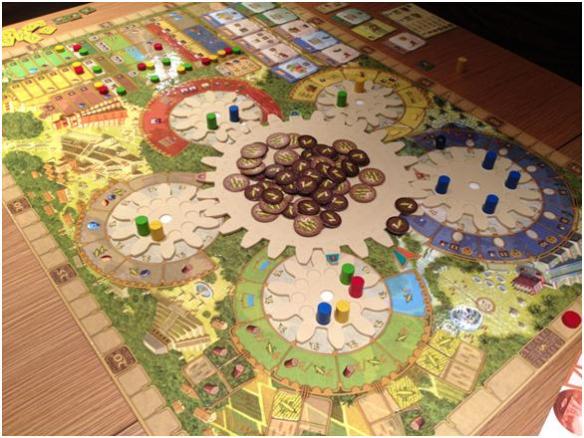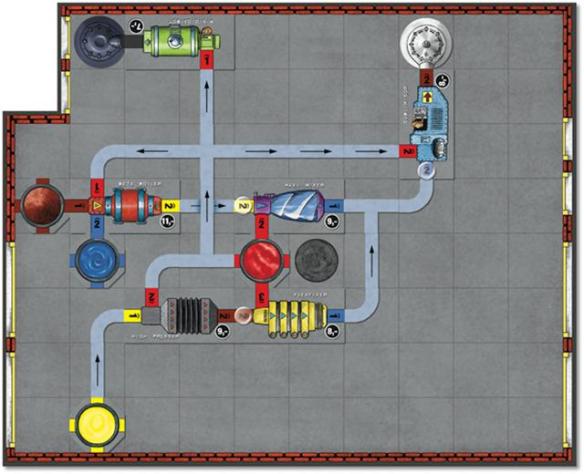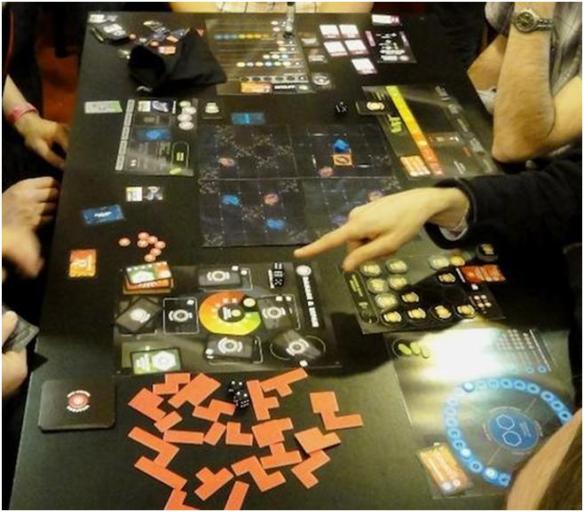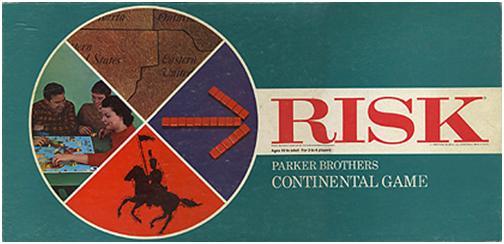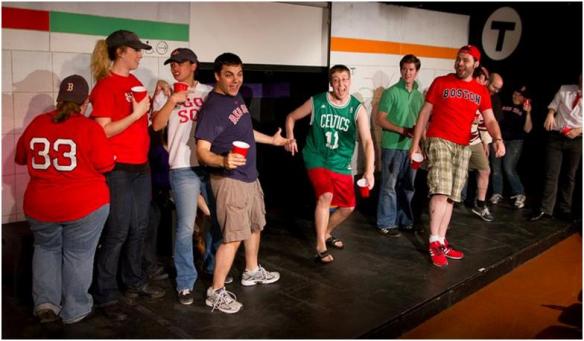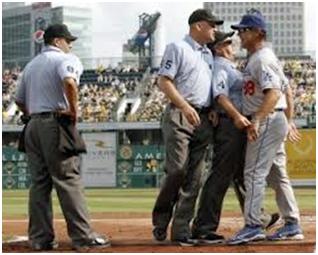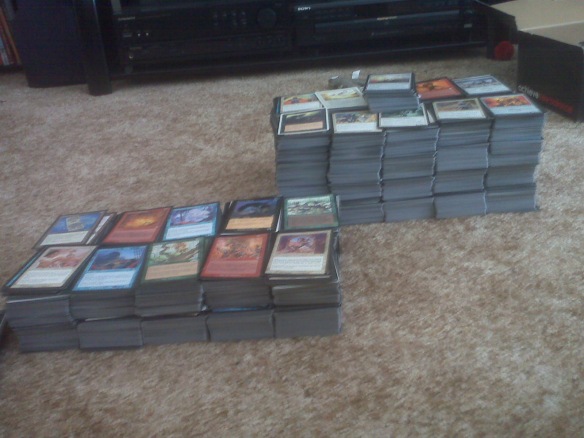Fairness, Justice, God-given rights. These are the luxuries of the mentally entitled. Those born into life on Carpellon know better. Our Legacy is a burnt-out rock in deep space, our Destiny is no more than that which we can take from the stars. And we haven’t found a God in the dust and storms.
When Shanix discovered a fleet of decommissioned Terraforming robots from the old Gene War days we took them as no more or less than an opportunity to make out way off this stinking rock and leave our-hand-to-mouth existence behind. “Hero” is just a way for the future to judge the past.
Still, one must always take time to appreciate the simple joys in life. Carax 9 is a tucked-away Artist Colony where the aspiring tortured souls of the galaxy with just enough talent and finance come to crank out the synth-drek that qualifies as art to the people who matter; those with credits to burn and taste that should be. Shanix and I must look like a couple of rubes to these people, but Shan always had a winning smile, and what can I say? The ladies love a tortured soul. A genuine Carpellon sob story gets you a night to forget your woes, and a few shiny trinkets that make a quick buck on the open market. And with a few modifications, the robots in tow are able to scrap some of the unneeded scaffolding to fuel our engines.
Race For the Galaxy doesn’t play like this, not really. It’s much closer to this:
I draw Destroyed World for my starting card. Oh, you choose develop, okay, I play Terraforming Robots. I chose Settle, with that I’ll play Artist Colony and take two cards, one for the rebate and one for the robots.
Games have the power to spark our imagination. Like literature, they can take us places we’d never go, and tell us amazing stories. They can even go that extra mile and allow us to tell our own. Some games are better designed for this than others, but they all have that potential. But is it really the point? A game of Race for the Galaxy takes about 20-30 minutes with 2-4 people who know how the game is played. It’s a fun game, but imagine if everyone was caught up in weaving their own galactic opera. It would take hours! And there’s already a game about creating a galactic opera; Twilight Imperium 3rd Edition. And it takes the better part of a day to play, without getting bogged down in narration. For most games it’s considered needless, but I often wonder if we’re missing out on the chance to treat ourselves and our friends to some beautiful tales using the games we clock through at high speed as the foil for something more intricate.
Be Wary of Houses on Hills*
Betrayal At House On The Hill is a game that thrives on its ability to tell an interesting story. I love the game, and am known to talk about it at length regarding its initial release and discontinuation, its emergent cult following, the online bidding wars for it and the ultimate reprint (oh, and the game’s good too). It’s a good game design, with a potentially amazing theme wrapped around it. Everyone plays an archetypal character from a horror movie; the jock, the old scientist, the gypsy, the 10 year old boy who’s there for some odd reason, etc. You take turns exploring an expanding and architecturally maddening house, encountering such horror classics as a voice in the shadows, a creepy doll that talks, a werewolf, and my personal favorite, a mirror that shows you yourself from the future. In the end, somebody becomes the traitor in a random scenario where everyone must work together to defeat the terror that looms before them.

Alright, rag-tag group of would-be adventurers, let’s get in there. And don’t forget to split up immediately.
Most people will say it’s a great game. I would say it’s two great games, and here’s what I mean. Gamers enjoy it, but they will burn through it the more they play. Cards won’t even get read at times; it’s simply “roll the dice. This happens. Next turn.” Or, “everyone pile into the room that gives you a stat bump.” It’s fun, but in a game-y way.
Then there are those whom I prefer to play with, those who endeavor to get into the spirit of the horror genre. Using character voices, reading the encounters with appropriate gravitas, working together not just to beat a game, but build a narrative, can make for a playing experience that sticks with you the same way a good book, or even a personal event can. When you find yourself recounting a play-through of the game with the same excitement and tone as “this crazy thing happened to me one time” you know you’ve done something extraordinary.
Here’s mine:
In the master bedroom of the home I found a man, unkempt, scars across his arms and a stare that would have frightened most women. But I grew up in the bayou. I know from madness in ways the city-folk with me don’t understand. We made fast friends. I knew him only as the Madman, and I would come to understand that he’s been trapped here for a great long time. The house is loathe to leave its treasures to roam. That’s fine, all the tools we need to defeat it are scattered in its dusty halls and strange rooms.
A madman can be dangerous. A madman wearing plate armor and a magic medallion wielding an axe is a force of nature.
Madman, Armor, Axe and Medallion are all items you can acquire. Strictly speaking you’re the one equipped and the madman’s just there, but this is better.
The mad scientist wandered the basement, away from prying eyes. There was a shift in the wind as he began to read from an eldritch tome. “With this the ritual begins. Soon I will have all I need to close the circle and feed on the power from beyond! Soon, I-
*DING*
He turned, slowly, to view a pair of doors he was sure wasn’t there before sliding open. The dim hallway was briefly lit by the interior fluorescent lights of – he couldn’t believe it – an elevator? His stunned reaction turned to shock at the appearance of that annoying little teenager Jenny LeClerk, and an odd, haunted looking man that looked dressed for a holy war with Abraham Lincoln. The sight would have been humorous, given a few seconds. In half that time, the man became a blur of motion and noise.
“Gyaaaahh!”
The Madman would not let this house claim another soul.
For those of you familiar with the game; the Haunt was triggered, and I quickly found the Mystic Elevator and was able to take it to the floor the traitor was on. All the items I had bumped my attack up immensely, and I rolled absurdly well. The traitor was dropped in a single blow, and the rest of the haunt, I forget which one it was specifically, was easily handled. The point is that the narrative that was woven and shared with everyone involved was much greater than the game itself.
Pickles On Parade.
Of course it doesn’t always work this way. Sometimes a game is just a game. And sometimes it isn’t game enough.
Sometimes a game meant to invoke a story fails as a game. I played a card game recently called Anima: The Shadow Of Omega. It’s a pretty bad game.** But in it I saw the potential to tell neat little tales of adventure through the components, in a way that the game may have intended but ultimately failed on. The game, in brief, involves you gathering a team of adventurers to explore far-off places and conduct missions. You gain strength, and ultimately defeat a final mission to win. The game does have a sort of story, but it’s a bunch of unlistenable crap about the City of Infinity and the Orb of Chaos shackled in the Chains of Oblivion or something. The game tries to get you to make your own tale out of it all. Some upgrade cards called “events” use a book as their icon, and contain common story tropes. For instance, I drew “Leading Role,” giving one of my characters a boost in attack, but made him the first to die in a failed encounter. So instead of a pile of numbers, I wanted so much to see my “Dark Paladin” as this dramatic anti-hero doomed to live by the sword alone, until he finds companions who trust him, and ultimately redeem his soul before he’s… randomly discarded by a bad die roll? And now my team is four goofily/scantily clad anime chicks? WTF!
I get the impression they hoped story-telling and imagination would replace a poorly designed game.^ It doesn’t. Any moments of interest I had in weaving a story arc were drowned out in an overwhelming desire to understand, learn to play, and ultimately get through (or in our case, quit) a frustrating game.
Sometimes a game mustn’t be forced to tell a story. Steve Jackson’s Chez Geek is a card game about a bunch of roommates who hold jobs they hate and are seeking to gain enough “slack” points to overcome the varying tedium of their existence. It’s full of that kind of pseudo-satirical humor that’s funny the first time, then just wears on you. Still, the game is good, and its theme is fairly strong. My introduction to it was in high school at a gaming convention. The “Steve Jackson Demo team” (which, in retrospect, was probably just a group of people who knew how to play his games) showed it off, and insisted that the game was much more fun when you role-played it and treated the characters in the cards like people you actually knew in real life. Nobody at the table was really interested. The game is kind of obsessed with sex, which it calls “nookie,” and is scored with a die roll. Gathering a bunch of awkward strangers around a table and getting them to talk about how good or bad the sex was based on the roll is, again, funny the first time only. But apparently…
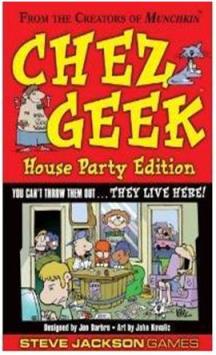


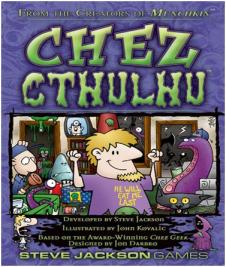
People seem to like it. This isn’t even half the total expansions out there.
Sometimes you simply don’t have time to appreciate the narrative arc. I recently played Mage Knight at an MIT board game gathering. The evening was fun, and merits a post all its own. But a moment struck me during the tutorial (which lasted as long as a normal game of most other board game I’ve played). The game allows you to negotiate with towns, monasteries, etc., or you can attack and loot them. Good-aligned gamers would balk at the idea, but the game sort of forces it on you, since a pure noble path gets you jack squat, while the marauders of the countryside get the powers, points, and p-bragging rights. So it was with reluctance that I burnt down a monastery to get at the Horn of Glory, an artifact of fair-to-moderate power designed to bring castle keeps to their knees. And there just happened to be one nearby. I thought, this is fantastic! They were probably planning to bring them down themselves, but now I can make good on my moral dilemma and do it myself! At which point I took another hit of evil rep because everything on the map that doesn’t have gnashing teeth and a big “I hate Heaven” sign on its spike armor is apparently a bastion of nobility. And nobody at the table appreciated the moment, as my neophyte status was dragging my turns out in this 4 hour epic struggle between man and math. The game is fun, and it paints a fine picture of these warriors among men carving their legend into the countryside, but it takes a back seat to all the plotting, planning, number-crunching tactical aspects. You know, the game.
I’ve seen things you people wouldn’t believe
And that’s the thing, isn’t it? A game is more than the sum of its parts, but how much more? Is this nebulous thing I describe as immersion the reason some of us play games, or is it a condiment, sometimes delicious and sometimes unpalatable, on the side of the main course dish that is the game qua game? It’s most likely in the middle, or more accurately, I believe it is the average of two extremes. Sometimes we want a swift romp through the bits and pieces and fun mechanics of a game, rolling dice and swapping whatever resources the game has in an effort to be the guy with the most points. And sometimes we want to feel like great heroes, or bottom-feeding pirates, great beasts among men and hard-luck detectives striving to make right a world so wrong. And when we do get that feeling, we want to tell these stories to our friends, like we were really there.
There are hundreds of games out there, each designed to scratch that particular itch you and/or your friends have when gaming (and incidentally, Mage Knight is supposed to have an awesome single-player setup, if that’s your thing). It’s an odd place, this subculture of tabletop gaming we laud, but for those willing to brave its waters I guarantee there is something beautiful for you.^^
Take care, and good gaming.
*Especially if those hills have eyes.
** From Fantasy Flight’s website: “The revised edition of Anima: Shadow of Omega has been overhauled to create a more enjoyable and dynamic game experience than previous editions. Revisions include brighter art, enhanced graphics, more durable cards, and an updated rules set that incorporates errata. This edition also introduces the all-new “Crisis!” end-game design which creates exciting showdowns and dramatic finishes for every game.” So yeah, they know the earlier editions are broken. I’m not in a hurry to find out if they fixed it.
^ A bit of internet sleuthing suggests that the card game is based off a role-playing system like D&D.
^^ P.S. I’d like to leave this post with a link to a site I think is amazing. If you like our blog, you’ll love these two UK blokes, as they love board games more than even the self-proclaimed gamers I’ve spent years with. Their site is called Shut Up and Sit Down, and they’ll change the way you think about gaming. And for extra credit, please take the time to watch this 40 minute video of Quinns speaking on the golden age of tabletop game design.


